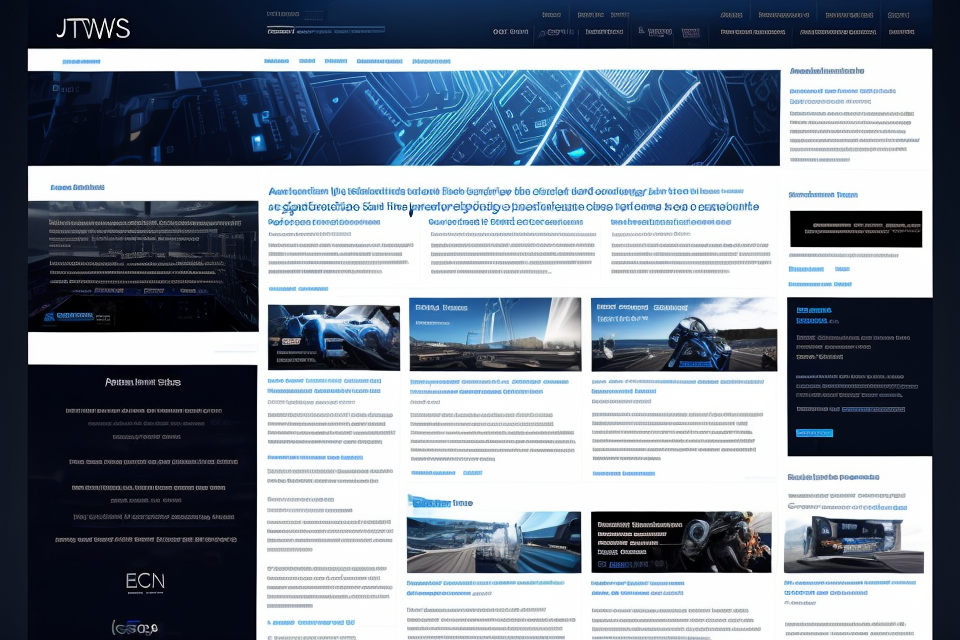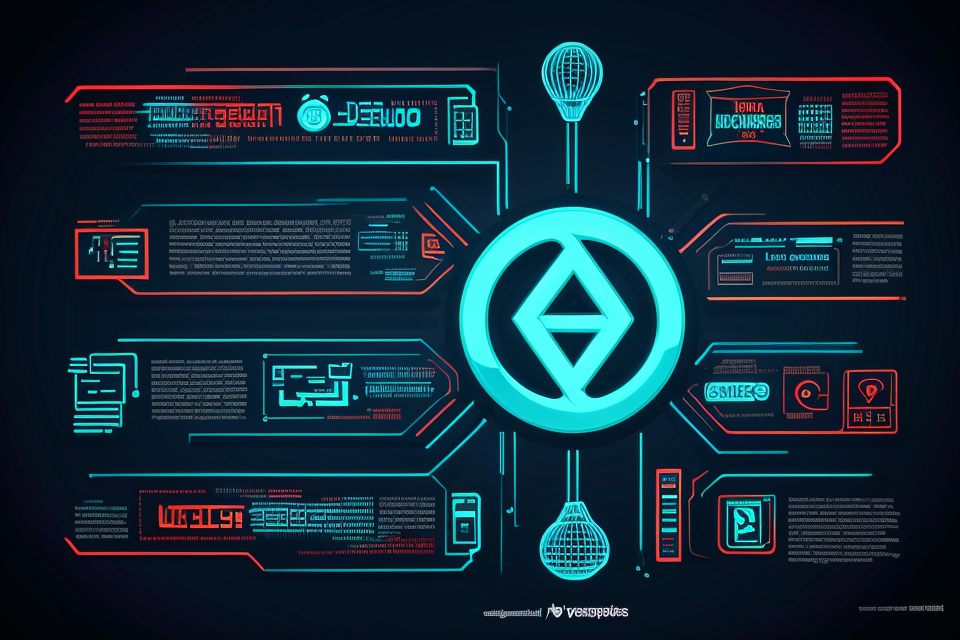The future of technology is always a topic of great interest and anticipation. With each passing day, new advancements are being made that are shaping the way we live, work and communicate. But what can we expect from technology in 2025? Will we see the rise of new innovations that will change the way we live our lives? Will we see the integration of artificial intelligence and machine learning in our daily lives? These are some of the questions that we will explore in this article as we take a closer look at what the future of technology holds for us. Get ready to be amazed as we delve into the world of technology and see what it has in store for us in the next five years.
In 2025, we can expect technology to continue to advance at a rapid pace. We can expect to see more developments in areas such as artificial intelligence, virtual and augmented reality, and the Internet of Things. These technologies will continue to change the way we live and work, and will have a major impact on industries such as healthcare, education, and transportation. We can also expect to see more advancements in renewable energy and sustainable technologies, as well as continued progress in space exploration. Overall, technology will continue to play a major role in shaping our world in the coming years.
Advancements in Artificial Intelligence
Improved Natural Language Processing
- Advancements in machine learning algorithms: In 2025, we can expect to see significant advancements in machine learning algorithms specifically designed for natural language processing. These algorithms will enable computers to understand and interpret human language more accurately and efficiently, allowing for more sophisticated interactions between humans and machines.
- Enhanced speech recognition capabilities: As natural language processing continues to improve, we can expect to see enhanced speech recognition capabilities. This will allow for more accurate transcription of spoken language, as well as improved recognition of different accents and dialects.
- More sophisticated chatbots and virtual assistants: With the improvement in natural language processing, chatbots and virtual assistants will become more sophisticated. They will be able to understand and respond to more complex queries and commands, and will be able to carry out more tasks on behalf of their users. This will lead to more seamless and intuitive interactions between humans and machines.
Increased Use of AI in Healthcare
Artificial Intelligence (AI) has already begun to revolutionize the healthcare industry, and by 2025, we can expect to see even more widespread adoption of AI technologies. Here are some of the ways in which AI is likely to be used in healthcare in the near future:
Early detection of diseases through AI-powered diagnostics
One of the most promising applications of AI in healthcare is in the area of disease diagnosis. By analyzing large amounts of patient data, including medical records, imaging studies, and genetic information, AI algorithms can help doctors identify patterns and make more accurate diagnoses. This technology has already been used to develop algorithms that can detect breast cancer, lung cancer, and other diseases with high accuracy. In the coming years, we can expect to see even more sophisticated AI-powered diagnostic tools that can detect diseases at an earlier stage, when they are more treatable.
Personalized treatment plans based on patient data
Another area where AI is likely to have a major impact is in the development of personalized treatment plans for patients. By analyzing large amounts of patient data, including medical history, genetics, and lifestyle factors, AI algorithms can help doctors tailor treatments to individual patients. This can lead to better outcomes and fewer side effects, as well as more efficient use of healthcare resources. For example, AI algorithms can help doctors choose the most effective drugs and dosages for individual patients based on their genetic makeup, or predict which patients are at highest risk of developing certain diseases so that preventive measures can be taken.
Remote patient monitoring and telemedicine
Finally, AI is likely to play an increasingly important role in remote patient monitoring and telemedicine. By analyzing patient data remotely, AI algorithms can help doctors monitor patients’ health and detect early signs of disease. This can be especially useful for patients who are unable to visit a doctor in person, such as those living in remote areas or those with mobility issues. AI can also be used to improve telemedicine services, allowing doctors to conduct virtual consultations and diagnose patients based on data collected from wearable devices and other sources. This can help improve access to healthcare for patients who are unable to visit a doctor in person, and also reduce healthcare costs by reducing the need for in-person visits.
Advancements in Autonomous Vehicles
Improved self-driving technology
The advancements in autonomous vehicles in 2025 will focus on improving the self-driving technology. This includes the development of more sophisticated sensors and cameras that can detect and respond to a wider range of situations on the road. The goal is to create a more accurate and reliable system that can handle complex driving conditions and make decisions faster than human drivers.
Integration of AI in traffic management systems
In addition to improvements in self-driving technology, there will be a greater integration of AI in traffic management systems. This will include the use of machine learning algorithms to optimize traffic flow, reduce congestion, and improve safety. The goal is to create a more efficient and safer transportation system that can adapt to changing conditions in real-time.
Expansion of autonomous vehicle fleets for public transportation
The expansion of autonomous vehicle fleets for public transportation is also expected in 2025. This includes the deployment of more autonomous buses and trains that can operate without human drivers. The goal is to provide a more efficient and cost-effective public transportation system that can serve more people and reduce traffic congestion. Additionally, the integration of AI in these fleets will enable them to make real-time adjustments to their routes based on traffic conditions and passenger demand.
Emerging Technologies
Blockchain Technology
- Expansion of blockchain use cases beyond finance
- Increased adoption in supply chain management
- Enabling transparent and tamper-proof tracking of goods
- Improving efficiency and reducing fraud
- Applications in voting systems
- Ensuring secure and transparent elections
- Enabling end-to-end verifiability of votes
- Use in identity management
- Secure and decentralized storage of personal information
- Reducing the risk of data breaches and identity theft
- Increased adoption in supply chain management
- Improved security and privacy through decentralized systems
- Reduced reliance on centralized authorities
- Increased resistance to censorship and tampering
- Enhanced protection of sensitive data
- Greater interoperability between different blockchain networks
- Cross-chain communication and transaction settlement
- Seamless integration of decentralized applications
- Facilitation of inter-blockchain data sharing and smart contract execution.
5G Networks
Faster and more reliable internet connectivity
One of the most significant advancements that we can expect from technology in 2025 is the widespread implementation of 5G networks. This fifth-generation cellular technology promises to deliver faster and more reliable internet connectivity, with download speeds that can reach up to 20 Gbps. This will enable users to stream high-definition videos, engage in virtual reality experiences, and enjoy smooth video calls without any buffering or lag.
Expansion of IoT devices and smart cities
Another exciting development that 5G networks will bring is the expansion of IoT (Internet of Things) devices and smart cities. With the increased speed and lower latency of 5G networks, it will be possible to connect more devices and sensors, making our cities smarter and more efficient. This will enable real-time monitoring of traffic, energy usage, and public safety, allowing for more effective resource management and improved quality of life for citizens.
Improved connectivity for remote work and virtual collaboration
Finally, the rollout of 5G networks will also bring improved connectivity for remote work and virtual collaboration. With faster and more reliable internet speeds, remote workers will be able to participate in virtual meetings and collaborate with colleagues in real-time, without worrying about lag or buffering. This will be especially beneficial for businesses that have remote teams or employees working from home, as it will enable seamless communication and collaboration across geographical boundaries.
Quantum Computing
Quantum computing is an emerging technology that promises to revolutionize computing by providing increased computing power for complex calculations. With its ability to perform certain calculations exponentially faster than classical computers, quantum computing has the potential to transform industries such as cryptography, drug discovery, and materials science.
One of the key benefits of quantum computing is its ability to perform certain calculations exponentially faster than classical computers. This is due to the principles of quantum mechanics, which allow quantum computers to perform certain operations in parallel, rather than sequentially like classical computers. This means that quantum computers can solve certain problems much faster than classical computers, making them ideal for tasks such as breaking encryption codes or simulating complex molecules for drug discovery.
In addition to its increased computing power, quantum computing also offers enhanced data encryption and security. Quantum cryptography, for example, uses the principles of quantum mechanics to create unbreakable encryption codes, making it an ideal solution for secure communication in sensitive industries such as finance and government.
There are also new use cases emerging for quantum computing in fields such as cryptography and drug discovery. For example, researchers are using quantum computers to simulate the behavior of molecules and materials, which could lead to the development of new drugs and materials with unique properties. In the field of cryptography, quantum computers are being used to develop new encryption algorithms that are resistant to quantum attacks, ensuring the security of sensitive data in the face of increasing cyber threats.
Overall, quantum computing is an exciting technology with the potential to transform many industries in the coming years. As researchers continue to develop new algorithms and applications for quantum computing, we can expect to see it become an increasingly important part of our daily lives.
Impact on Society and Economy
Changes in the Workforce
The rapid advancement of technology is poised to bring significant changes to the workforce by 2025. As automation and artificial intelligence become more prevalent, routine tasks and jobs will be increasingly handled by machines, necessitating a shift towards higher-skilled and creative work. This transition will not only alter the nature of employment but also emphasize the need for continuous learning and upskilling.
- Automation of routine tasks and jobs:
- The integration of automation technology into various industries will streamline processes and increase efficiency, reducing the demand for routine tasks and jobs that can be easily performed by machines. This shift will likely impact sectors such as manufacturing, customer service, and data entry, resulting in a reevaluation of the roles and responsibilities of human workers.
- Shift towards higher-skilled and creative work:
- As routine tasks become automated, the workforce will need to adapt by developing higher-skilled and creative abilities. This may involve learning specialized software, mastering complex problem-solving techniques, or engaging in innovative thinking to remain competitive in the job market. The focus will be on skills that complement and enhance the capabilities of automation, rather than directly competing with machines.
- Need for continuous learning and upskilling:
- The rapidly evolving technological landscape will necessitate ongoing education and skill development for workers. It will be crucial to stay informed about emerging trends, technologies, and industry standards to maintain a competitive edge. Lifelong learning will become increasingly important, with individuals encouraged to embrace continuous learning as a means of adapting to new challenges and opportunities in the workforce. Employers and educational institutions will need to collaborate in providing accessible learning opportunities and resources to support this ongoing process of upskilling.
Ethical Considerations
Ensuring fairness and transparency in AI systems
As artificial intelligence (AI) continues to advance and become more integrated into our daily lives, it is crucial to ensure that these systems are fair and transparent. This means that AI developers must be aware of potential biases in their algorithms and work to eliminate them. It also means that the decision-making processes of AI systems must be understandable and explainable to the public. This can be achieved through the development of more robust explainability tools and the creation of ethical guidelines for AI development.
Addressing bias and discrimination in data and algorithms
Another critical aspect of ethical considerations in technology is addressing bias and discrimination in data and algorithms. This can manifest in various ways, such as in hiring algorithms that favor certain groups over others or in facial recognition technology that is less accurate for certain groups of people. To address this issue, researchers and developers must work to identify and eliminate any biases in their data and algorithms. Additionally, regulations may need to be put in place to ensure that companies are held accountable for any discriminatory practices.
Balancing innovation with societal values and regulations
Finally, it is important to balance innovation with societal values and regulations. Technology has the potential to greatly benefit society, but it can also have negative consequences if not developed and used responsibly. As such, it is crucial to consider the ethical implications of new technologies and ensure that they align with societal values and regulations. This can be achieved through collaboration between industry, government, and civil society to develop ethical guidelines and regulations for technology development and use.
Economic Implications
- Growth opportunities in emerging industries and technologies
As technology continues to advance, we can expect to see significant growth opportunities in emerging industries and technologies. These may include fields such as artificial intelligence, biotechnology, and renewable energy, among others. As these industries develop, they will create new job opportunities and drive economic growth. - Disruption of traditional industries and business models
However, the advance of technology will also lead to the disruption of traditional industries and business models. As new technologies become more prevalent, they will likely replace outdated methods of production and distribution. This will have a significant impact on industries such as manufacturing, retail, and transportation, among others. - Increased competition and globalization
Furthermore, the increasing use of technology will also lead to increased competition and globalization. With the ease of access to global markets, businesses will be able to reach customers around the world, leading to increased competition. This will force companies to adapt and innovate in order to stay competitive. Additionally, this will also lead to a greater exchange of ideas and cultures, leading to a more interconnected and globalized world.
FAQs
1. What can we expect from technology in 2025?
It’s difficult to predict exactly what technology will be like in 2025, as it’s always evolving and changing. However, we can expect that technology will continue to play a major role in our lives and will continue to advance in many areas. Some possible developments that we might see in the next few years include:
* Continued advancements in artificial intelligence and machine learning, which could lead to more sophisticated and capable systems
* Further development of the Internet of Things (IoT), which could lead to more connected devices and systems
* Improved virtual and augmented reality technologies, which could lead to more immersive and realistic experiences
* Advancements in biotechnology and genetic engineering, which could lead to new treatments and therapies for diseases
* Continued development of renewable energy technologies, which could help to address climate change and reduce our reliance on fossil fuels
2. How will technology impact our lives in 2025?
It’s likely that technology will continue to have a significant impact on our lives in 2025. Some possible ways that technology might impact our lives include:
* Making it easier for us to communicate and stay connected with others, both locally and globally
* Providing us with access to a wealth of information and knowledge
* Enabling us to automate many tasks and processes, freeing up time and resources
* Allowing us to access a wide range of entertainment and cultural experiences
* Providing us with new tools and technologies for work and education
3. What challenges might we face as a result of technological advancements in 2025?
As with any major changes, there are likely to be some challenges that come with the advancement of technology in 2025. Some possible challenges that we might face include:
* Privacy concerns, as our personal data becomes more accessible and vulnerable to being collected and used by others
* Cybersecurity threats, as our connected systems become more vulnerable to hacking and other attacks
* Job displacement, as automation and artificial intelligence replace some human jobs
* Ethical concerns, as we grapple with the implications of new technologies and their impact on society
* Income inequality, as some people may benefit more than others from the advancement of technology
4. How can we prepare for the changes that technology will bring in 2025?
There are a few steps that we can take to prepare for the changes that technology will bring in 2025:
* Stay informed about the latest developments in technology, and be aware of how they might impact your life and work
* Consider how you might be able to use technology to improve your life and work, and explore new tools and techniques
* Develop skills and knowledge in areas that are likely to be impacted by technological advancements, such as programming, data analysis, and cybersecurity
* Think about how you might be able to contribute to the development of technology, whether through research, development, or other means
* Consider the potential ethical and social implications of new technologies, and think about how you can contribute to a responsible and equitable development of technology.


